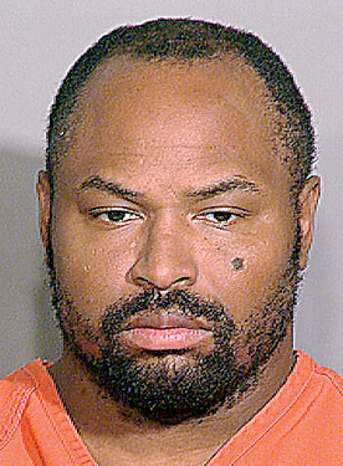Maurice Clemmons: Where does a killer come from?
Published 4:00 am Thursday, December 10, 2009

- Maurice Clemmons, who killed four police officers, brought a troubled past to the Northwest from Arkansas.
SEATTLE — It was in the late 1970s that Joe Lewis Clemmons left the impoverished Delta region of Arkansas and moved to the Pacific Northwest, starting a migration for his family that would continue for decades.
He wanted something better for his family — a family so big Joe was one of 21 kids. He wanted a haven from Lee County’s violence and racial hostilities.
“Joe started the string of us coming out here,” says his niece Carol Henderson, who now lives in Renton, Wash. “The whole reason for him trying to get his family to venture out here was for better opportunities.”
The migration Joe set in motion would, a quarter-century later, sweep up his nephew Maurice Clemmons, who was a 32-year-old parolee when he settled in Seattle in 2004.
Clemmons told a parole officer he planned to become a plumber. But when he moved to the Northwest, he brought with him the demons of his Arkansas past. On Nov. 29, he shot and killed four Lakewood police officers. All four were parents; nine kids have lost a father or mother.
Clemmons was shot and killed by a police officer on Dec. 1 after a two-day manhunt. In the aftermath, his family, in Arkansas and Washington, faces scrutiny from the police, the media, the public.
Some of his relatives and friends have been arrested, accused of rendering help to a wanted man.
Tough roots
The Clemmons family comes from Marianna, Ark., the seat of one of the poorest counties in one of the country’s poorest states. Unemployment pushes 30 percent; the typical family gets by on $24,000 a year, not even half the national median.
One longtime resident calls the town “landlocked” — no freeway, no Mississippi River, not even a stop for the railroad anymore. Dozens of homes stand empty. One dilapidated house, owned by a member of the Clemmons family, is now home only to feral cats.
Maurice Clemmons was born here in February 1972, during a period of tumult blamed to this day for the town’s collapse. The year before, to protest discrimination, black residents staged a boycott of white-owned businesses. Riots broke out, with homes and stores set afire and people shot at.
The violence drove jobs away. The Coca-Cola bottling plant closed. So did the factory where Clemmons’ father worked, making frames for automobile seats.
With Marianna offering so little, it’s small wonder Joe Clemmons left for Washington.
Maurice Clemmons’ mother, Dorthy Mae, was one of Joe’s siblings. She raised six kids, working two jobs. Looking to get out, she settled upon Little Rock, 85 miles west.
Criminal acts
There, 16-year-old Maurice Clemmons embarked on a seven-month crime spree. He robbed a woman in a hotel parking lot and burglarized the home of a state trooper. He got arrested and expelled for bringing a pistol to his high school. Years later, Clemmons would write from prison he “fell in with the wrong crowd.”
At 17, he was sentenced to 108 years in prison. To his family, the sentence was outrageous. He was staring down time that seemed more suited to rape or murder.
In prison, Clemmons continued to find trouble: battery, sexual assault, theft, drugs, weapons. Most violations occurred early in his prison stint, says Pulaski County Prosecuting Attorney Larry Jegley, who reviewed Clemmons’ correctional records. “They got him under control,” Jegley says. “He started to get it after a while.”
After serving 11 years, Clemmons appealed for clemency to then-Gov. Mike Huckabee.
In his petition, Clemmons said there was “absolutely no excuse” for his criminal past. He came from a good Christian family and was raised better than that. He was a changed man, he wrote. No longer would he “do evil.”
Huckabee granted the request in May 2000, citing Clemmons’ youth when the crimes were committed. Last week, his decision in the spotlight, Huckabee said he was influenced by Arkansas’ history of disproportionate sentences for poor black men.
After his release, Clemmons spent some time in Seattle. But in 2001, he burst into a house in Camden, Ark., and, at gunpoint, robbed the occupants of $10,000.
He returned to prison for three more years before being released on parole in 2004. Once out, he wanted to leave Arkansas for Washington, but Washington refused to take him unless he had a sponsor. Rickey Hinton, Clemmons’ half brother, stepped into that role — and Washington signed off, even though Hinton was a felon.
It was to be a fatal decision.
Families in pain
Today, five family members, including Hinton, have been charged with helping Clemmons after the shootings.
Carol Henderson, Clemmons’ cousin in Renton, is trying to find lawyers for her relatives who have been charged. She has made Clemmons’ funeral arrangements. Whatever she’s suffering, she cannot share.
“I can’t personally mourn my loss openly at work, because I’m going to be looked at,” she says.
Instead, she mourns in private.








